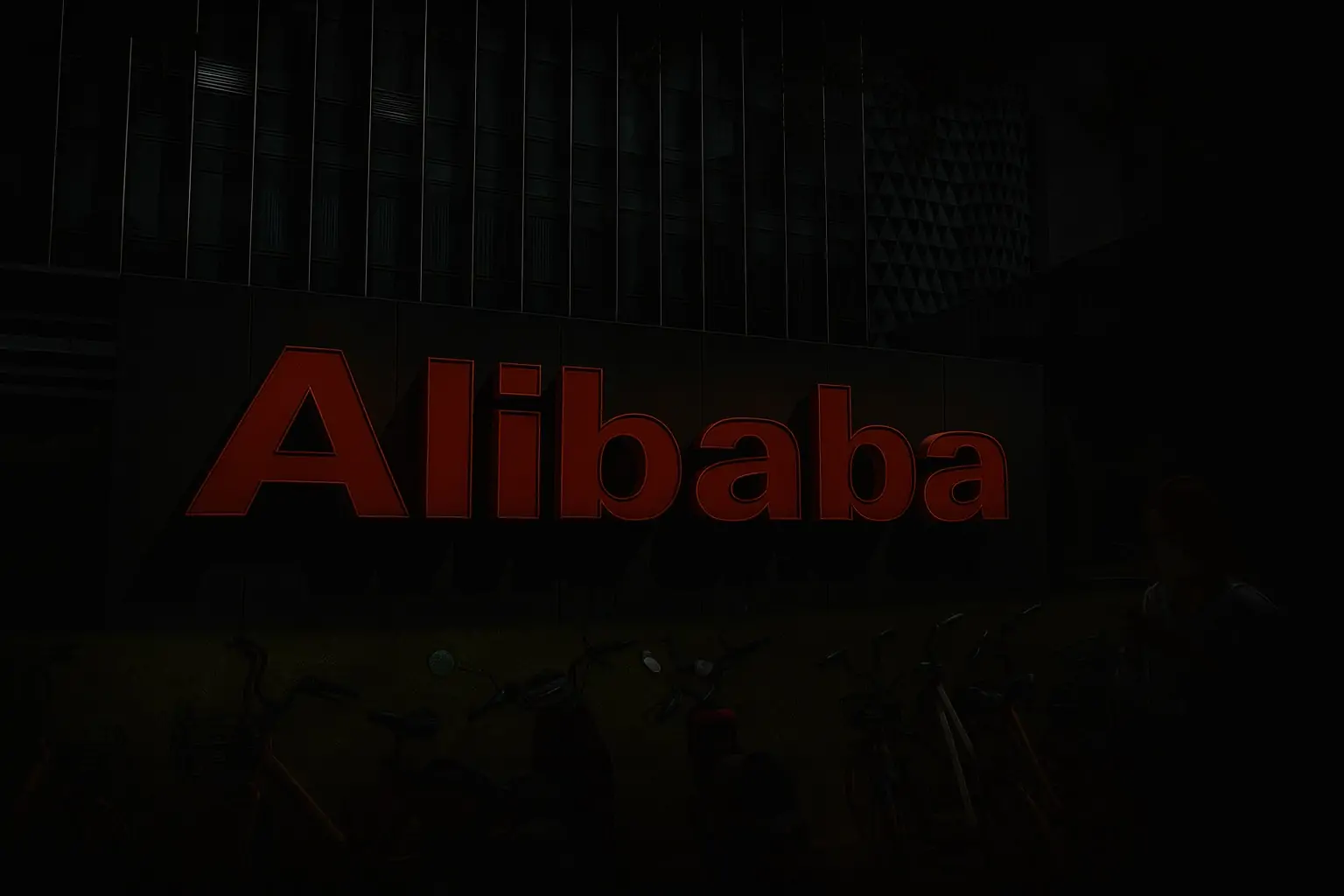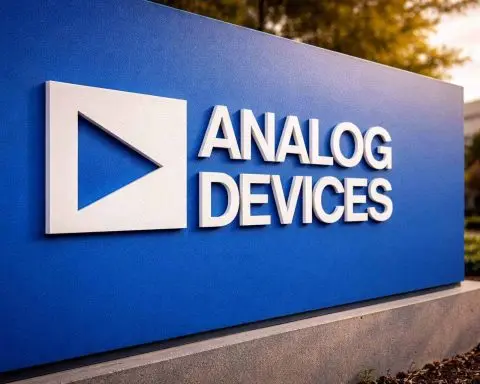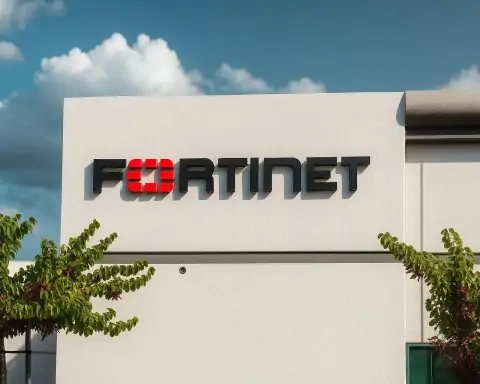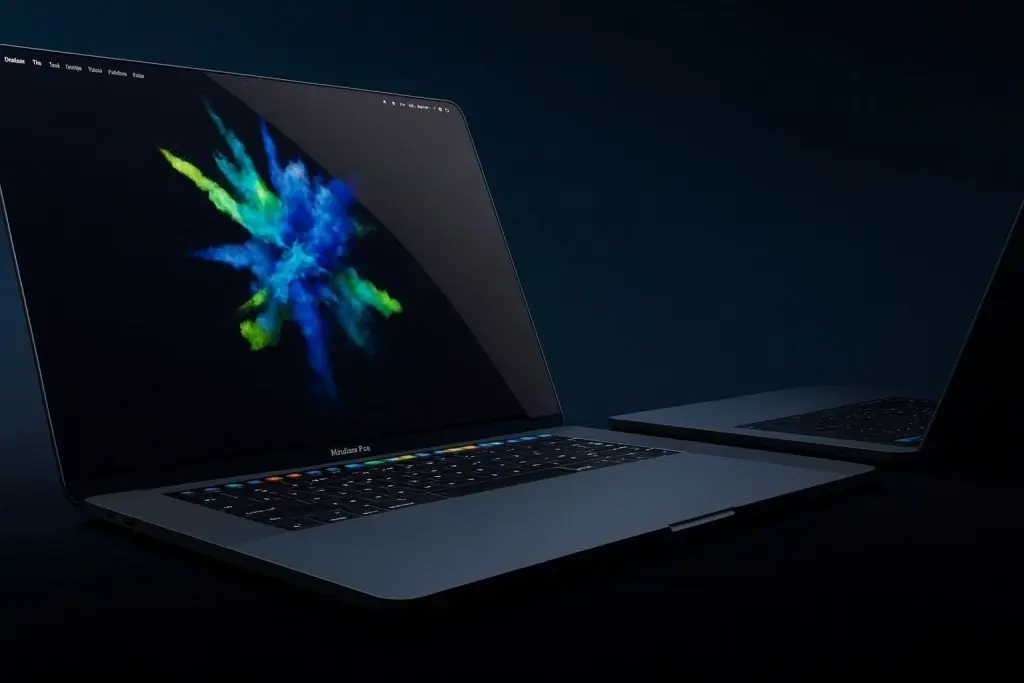- Alibaba lands major AI chip client: Chinese state media CCTV revealed that China Unicom, the country’s second-largest wireless carrier, has signed on to deploy Alibaba’s in-house AI chips (branded as Pingtouge or “T-Head” accelerators) in a massive new data center bloomberg.com. This marks Alibaba’s first high-profile external customer for its domestically developed AI semiconductors. Alibaba’s Hong Kong-listed shares surged over 5% on the news to their highest level since 2021 bloomberg.com.
- Alibaba’s AI chips power Unicom’s super data center: About 23,000 homegrown AI chips – 72% of them from Alibaba’s T-Head unit – are already installed in China Unicom’s sprawling new cloud facility in Qinghai province datacenterdynamics.com datacenterdynamics.com. The data center, a $390 million project, currently delivers 3,579 petaflops of computing power (with a goal of 20,000 petaflops) using only domestic AI accelerators datacenterdynamics.com datacenterdynamics.com. Alibaba’s chips will run alongside processors from a few other Chinese chipmakers (like MetaX and Biren) as part of the deployment bloomberg.com.
- Tech capabilities – competing with Nvidia’s AI chips: Alibaba’s latest AI chip designs are approaching world-class performance. Its current AI accelerator (the Hanguang series) delivers up to 820 TOPS (trillions of operations per second) and can process 78,563 images per second in inference tests t-head.cn. Industry reports indicate Alibaba’s newest AI chip (in testing on a 7nm-class process) is comparable to Nvidia’s China-only H20 GPU in performance reuters.com reuters.com. Alibaba’s chip reportedly outperforms Huawei’s Ascend 910B AI processor on key metrics like memory capacity coinprofitnews.com, although Huawei is readying an upgraded Ascend 910C chip.
- Major strategic boost for Alibaba: Gaining China Unicom as a client validates Alibaba’s chip business and aligns with Beijing’s push for tech self-sufficiency datacenterdynamics.com. It suggests strong domestic demand for Alibaba’s semiconductors, potentially opening doors to more government and enterprise deals. Alibaba’s cloud division has already begun shipping large volumes of its AI accelerators to Unicom’s data centers coinprofitnews.com. The deal underscores Alibaba’s reduced reliance on U.S. chip suppliers and positions it as a key player in China’s homegrown AI infrastructure initiative.
- China’s AI chip drive amid tech tensions: This development comes as U.S.-China tech tensions run high. The Cyberspace Administration of China (CAC) has reportedly banned Chinese tech firms from buying Nvidia’s AI chips like the RTX 6000D datacenterdynamics.com datacenterdynamics.com, following earlier U.S. export restrictions on advanced chips. Beijing issued directives requiring 50%+ of chips in state data centers to be domestic datacenterdynamics.com, fueling a race by Alibaba, Huawei, Baidu and others to build viable alternatives. Alibaba alone has pledged a staggering ¥380 billion (≈$53.5 billion) over three years to bolster its AI and cloud infrastructure coinprofitnews.com, including semiconductor R&D.
Alibaba’s AI Chip Business: From Hanguang 800 to T-Head Accelerators
Alibaba’s foray into semiconductors is relatively recent but rapidly expanding. In 2018, the company established its chip design unit Pingtouge (meaning “Honey Badger” in Chinese), also known as T-Head. By 2019, Alibaba unveiled its first in-house AI chip, the Hanguang 800, marking a milestone as Alibaba’s first-ever semiconductor product medium.com alibabacloud.com.
- Hanguang 800: A 12nm AI inference chip packed with 17 billion transistors, capable of 820 TOPS of compute t-head.cn. It excels at speeding up machine learning tasks – for instance, on the industry-standard ResNet-50 test, Hanguang 800 achieves an inference throughput of 78,563 images per second, with an energy efficiency of 500 IPS/W t-head.cn. This chip was initially used within Alibaba’s own operations (e.g. powering product search and recommendations on Alibaba’s e-commerce platforms) and offered via Alibaba Cloud services techcrunch.com. Its launch demonstrated Alibaba’s ability to design high-performance AI silicon on par with global players at the time.
- Yitian 710: Beyond AI-specific chips, Alibaba in 2021 announced the Yitian 710, a 5nm server CPU for general cloud computing. While not an AI accelerator per se, the Arm-based Yitian processor (128 cores) is part of Alibaba’s broader chip strategy to optimize everything from cloud servers to storage hardware. It underpins some of Alibaba Cloud’s elastic compute instances, showcasing Alibaba’s intent to control its data center stack end-to-end. Yitian and Hanguang chips together allow Alibaba to customize both the general-purpose and AI-specific processing in its cloud infrastructure, reducing dependence on traditional suppliers like Intel, AMD, and Nvidia networkworld.com networkworld.com.
- New 7nm AI chips in pipeline: Alibaba’s T-Head division is now testing a next-generation AI inference chip built on a 7nm-class process networkworld.com networkworld.com. Notably, unlike the Hanguang 800 (which was fabbed by TSMC in Taiwan), the new chip is being fabricated in China reuters.com reuters.com – likely at SMIC, China’s leading foundry. This signals a strategic shift to domestic manufacturing, circumventing potential export controls on foreign fabs. According to the Wall Street Journal, the new chip is more versatile than Alibaba’s earlier niche chips, targeting a broader range of AI inference workloads reuters.com reuters.com. It’s designed to handle tasks from computer vision to natural language processing in data centers, whereas Hanguang 800 was tailored to specific Alibaba workloads. In short, Alibaba is evolving from single-purpose accelerators toward general-purpose AI chips that can serve a variety of cloud customers.
Alibaba’s chip development is guided by a clear strategy: build competitive, homegrown silicon to power Alibaba’s cloud and AI services. Executives have framed this as core to the company’s future. After the U.S. imposed sweeping semiconductor export curbs in 2022, Alibaba’s leadership (including Chairman Joe Tsai) doubled down on developing an “indigenous solution” for advanced computing needs networkworld.com. The company views custom chips as vital for a “sustainable growth model” in the AI era, ensuring its cloud division isn’t hamstrung by geopolitics networkworld.com. Notably, company founder Jack Ma – who had retreated from Alibaba’s daily operations – has reportedly re-engaged in Alibaba’s strategy this year, with chip innovation being a key focus coinprofitnews.com coinprofitnews.com.
This strategic commitment comes with hefty investment: Alibaba is investing hundreds of billions of yuan in next-gen data centers, networking, and semiconductors for AI coinprofitnews.com. The goal is not only to fortify Alibaba’s own cloud (making it AI-ready and self-reliant), but also to offer these new chips to outside clients via Alibaba Cloud. Initially, Alibaba’s chips were used internally; now, with the China Unicom deal, Alibaba is effectively becoming a chip vendor to external customers for the first time. If successful, this could transform Alibaba’s T-Head unit from a cost center into a significant business line – potentially even spinning off or selling its AI chips more broadly in China’s market.
Landmark Deal with China Unicom: Significance and Impact
Securing China Unicom as a major customer is a breakthrough moment for Alibaba’s semiconductor endeavors. China Unicom is a state-run telecom giant, and its endorsement of Alibaba’s chips carries both commercial and political weight.
Deal details: China Unicom will deploy Alibaba’s Pingtouge AI accelerators in a huge new cloud data center in northwestern China (Xining, Qinghai) datacenterdynamics.com. According to CCTV (Chinese state TV), tens of thousands of Alibaba’s chips are being installed to boost the center’s AI computing capacity coinprofitnews.com. In fact, about 72% of the 23,000 AI chips currently in that facility are from Alibaba’s T-Head, with the rest supplied by a handful of domestic chip firms (MetaX, Biren, Zhonghao Xinying) datacenterdynamics.com. No foreign chips are in the mix. The center already delivers 3,579 petaflops of AI computing power and will scale up to 20,000 petaflops when fully equipped datacenterdynamics.com – an ambitious figure that underscores China’s cloud and supercomputing appetite.
Why is China Unicom opting for Alibaba’s chips? Part of the answer is national policy (more on that below), but there are also technical and business incentives:
- Competitive performance: In a briefing, China Unicom executives indicated that Alibaba’s AI chip outperforms Huawei’s Ascend 910B (a leading Chinese AI chip from Huawei) on several metrics, including having more advanced memory architecture coinprofitnews.com. In other words, Alibaba’s design proved its merit against a chief domestic rival. While Huawei’s current Ascend 910B is a bit older, Unicom’s validation suggests Alibaba’s chips deliver robust performance for AI tasks like model training and inference. Huawei is rolling out a new Ascend 910C, but Alibaba has seized a first-mover advantage at Unicom’s center.
- Synergy with Alibaba Cloud: The chips will be deployed via Alibaba’s cloud unit ground.news ground.news. This implies Alibaba Cloud might be managing or co-developing Unicom’s AI infrastructure. Unicom could leverage Alibaba’s expertise in cloud software (AI frameworks, distributed computing) alongside the hardware. For Alibaba, it’s a win-win: selling chips as well as potentially cloud services. The Unicom partnership blurs the line between a cloud customer and a chip client – Unicom might use Alibaba Cloud’s platform powered by Alibaba’s chips. It showcases Alibaba Cloud as a one-stop domestic alternative to U.S. providers: offering cloud computing powered by indigenous semiconductors.
- Government backing: This deal was highlighted on CCTV’s national news and even during Chinese Premier Li Qiang’s visit to the data center site coinprofitnews.com. A CCTV news segment showed a billboard at Unicom’s Sanjiangyuan data center listing Alibaba’s chips as key components coinprofitnews.com. Such public promotion signals official approval at high levels. It’s likely part of Beijing’s broader strategy to showcase self-reliance in critical tech. The involvement of a state telecom like Unicom suggests this was encouraged from the top. In effect, the government is endorsing Alibaba’s chips and providing them a marquee customer to accelerate maturity.
Impact on Alibaba: The stock market reaction – Alibaba shares jumping 5.3% in one day bloomberg.com – reflects investor perception that Alibaba’s chip venture just went from experimental to commercially viable. A top-tier client provides revenue and volume that can justify the massive R&D investments in T-Head. It also raises Alibaba’s profile in the semiconductor industry; Alibaba is now credibly in the AI chip race, not just as a cloud user but as a chipmaker. This could attract more partners or customers (perhaps other state enterprises, cloud clients, or even international cloud regions that Alibaba operates).
Moreover, being chosen over Huawei (for this project) might give Alibaba an edge in future contracts. China has multiple big telecom and cloud infrastructure projects (e.g. China Mobile’s cloud, city-level smart infrastructure) – success with Unicom could lead to Alibaba chips being used in other state-backed deployments. Indeed, rival Baidu recently secured a ¥10 billion deal to supply servers with its Kunlun AI chips to China Mobile coinprofitnews.com. Now Alibaba has a comparable reference win with Unicom. These parallel deals indicate a trend: Chinese tech giants each championing their own silicon in national telecom networks. It’s almost a divide-and-conquer approach to replace foreign AI chips – Alibaba powers Unicom, Baidu powers Mobile, etc., reducing risk that any single domestic chip provider can’t meet demand.
Finally, this deal bolsters Alibaba Cloud’s competitiveness. In China’s cloud market, Alibaba Cloud leads, but faces competition from Huawei Cloud, Tencent Cloud, Baidu Cloud etc. If Alibaba Cloud packages its services with proprietary high-performance chips, it could offer better price-performance or availability for AI workloads – a unique selling point especially as Nvidia GPUs become scarce or restricted. In essence, Alibaba is doing what U.S. cloud giants have done (like Amazon designing Graviton CPUs and Trainium AI chips for AWS) to differentiate their cloud offerings networkworld.com networkworld.com. This could help Alibaba maintain leadership at home and potentially attract foreign cloud clients in regions where Alibaba Cloud operates (Asia-Pacific, Middle East) who want an alternative to Nvidia-based solutions networkworld.com networkworld.com.
Competing with the Global AI Chip Leaders (Nvidia, AMD, Intel, Google, Huawei)
Alibaba’s growing presence in AI hardware puts it into competition – or at least comparison – with the world’s leading chipmakers and AI compute providers. Here’s how Alibaba stacks up and what each competitor is doing in the AI chip arena:
Nvidia: The gold standard (for now). Nvidia is the undisputed leader in AI chips globally, with its GPUs like the A100, H100, and upcoming Blackwell generation powering most cutting-edge AI models. Chinese companies have traditionally relied heavily on Nvidia – Alibaba itself was one of Nvidia’s top customers for data center GPUs reuters.com reuters.com. However, U.S. export controls have cut off Nvidia’s flagship chips from China. Nvidia’s workaround has been the “H20” GPU, a slightly neutered version of H100 allowed for China. Even that has run into hurdles (recently China moved to block even the H20 – more on that later).
Alibaba’s goal is clearly to replace Nvidia’s chips in its own operations and Chinese markets where possible. It’s already using its internal chips for some AI training tasks – since early 2025 Alibaba has been training smaller AI models on its own silicon instead of Nvidia’s, according to insider reports reuters.com reuters.com. Importantly, The Information (tech news site) reported that Alibaba’s newest AI chip is roughly on par with Nvidia’s H20 in performance reuters.com reuters.com. That means while Nvidia still holds the edge at the ultra-high end (H100 and beyond), Alibaba can meet the needs for workloads that would have used an H20 (or Nvidia’s earlier A100 generation). An Alibaba employee was quoted saying the gap has closed enough that the “competition has undeniably arrived”, even prompting an Nvidia spokesperson to acknowledge they’ll “continue to work to earn the trust of developers” as Chinese alternatives emerge reuters.com reuters.com.
That said, Nvidia retains advantages: its software ecosystem (CUDA) and developer community are unparalleled networkworld.com. Alibaba appears mindful of this – its new chip is expected to be CUDA-compatible, enabling developers to port AI code written for Nvidia GPUs directly onto Alibaba’s hardware networkworld.com networkworld.com. This is crucial; as one analyst noted, “Nvidia’s dominance isn’t just hardware; it’s the software. A seamless compatibility layer would let developers bypass the steep learning curve of new platforms” networkworld.com. If Alibaba’s chips can run mainstream frameworks (PyTorch, TensorFlow) without hassle, they become much more attractive versus Nvidia in China. In summary, Alibaba is positioning itself as the Nvidia of China, at least for the permissible performance tier. Nvidia still leads globally (and in ultra-high-end AI training that Chinese chips can’t yet handle), but Alibaba is quickly eroding Nvidia’s would-be China market by offering an acceptable substitute that comes free of geopolitics.
AMD and Intel: Challengers playing catch-up. Both AMD and Intel have been racing to gain ground in AI accelerators, though neither has Nvidia’s momentum. AMD’s latest data center GPUs (like the MI300 series) aim to compete with Nvidia’s H100 in high-end training and inference. AMD does have some wins – e.g., MI250 GPUs were used in the Frontier supercomputer – but in the AI cloud market AMD is still a distant second. In China, any AMD high-end chips would face the same export license issues as Nvidia’s, since U.S. rules apply to all advanced American GPUs. There were reports that after the 2022 export rules, AMD also produced a China-only GPU variant (similar to Nvidia’s A800) to stay within limits networkworld.com. But Chinese buyers have generally shown “mild interest” at best in these scaled-down foreign chips coinprofitnews.com coinprofitnews.com. In fact, Nvidia’s newly unveiled RTX 6000D, a downgraded card for China, has seen sluggish demand and criticism that its $7,000 price tag “under-delivers” in performance coinprofitnews.com coinprofitnews.com.
Intel, for its part, has bet on its acquisition of Habana Labs, producing Gaudi AI accelerators. Some cloud providers (like AWS) offer instances with Intel’s Gaudi2 chips as a cheaper alternative to Nvidia. But Intel’s AI silicon is still not widely adopted for cutting-edge AI model training. Intel is also working on a next-gen hybrid chip (combining GPU and CPU) called Falcon Shores, but that’s in the future. In the context of Alibaba: AMD and Intel are suppliers of general-purpose chips (CPUs) to Alibaba Cloud, but when it comes to AI-specific chips, Alibaba now prefers its own or, if needed, Nvidia’s (when allowed). AMD and Intel currently pose little direct threat to Nvidia’s dominance nor Alibaba’s domestic niche, though they remain in the race. It’s worth noting that U.S. sanctions affect them too – any state-of-the-art AI chip from AMD/Intel would likely be restricted from China, leveling the playing field in which Alibaba and Huawei operate without Western competition in that segment.
Google and other Big Tech (in-house AI chips): Alibaba’s strategy of in-house chip design mirrors a trend among global tech giants. Google has developed the Tensor Processing Unit (TPU) series – specialized AI chips used in Google’s own data centers since 2016. Google’s TPUs (now in their 4th/5th generation) have achieved comparable performance to Nvidia’s GPUs in certain tasks and are extensively used to power Google services and Google Cloud’s AI offerings. However, Google doesn’t sell TPUs directly on the market; they are available to cloud customers via Google Cloud. Similarly, Amazon created custom AI chips (Inferentia for inference and Trainium for training) for AWS to reduce reliance on Nvidia. These moves by Google, Amazon – and now Alibaba – underscore a key point: cloud providers want their own silicon to optimize performance and cost for AI workloads, and to have leverage against Nvidia’s monopoly pricing. Alibaba is effectively the “Google of China” in this respect, building bespoke AI hardware for its cloud.
The difference is Google and Amazon operate in a less restrictive environment – they choose in-house chips for business reasons – whereas Alibaba must develop them also for geopolitical reasons. In terms of capability, Alibaba’s newest chips haven’t been publicly benchmarked against Google’s TPU v5 or Amazon’s Trainium, but all these cloud-tailored chips share a common aim: deliver high throughput for AI at lower cost than general GPUs. It’s likely that Alibaba’s designs focus on similar approaches (e.g. lots of matrix multiplication units for neural nets, high memory bandwidth, and efficiency for inference). We can expect Alibaba to continue this parallel path to U.S. peers: just as Google keeps improving TPUs, Alibaba will iterate its Hanguang/T-Head chips, possibly offering them via Alibaba Cloud internationally. In sum, Alibaba’s competition is not only traditional chip vendors, but also the integrated tech companies developing AI chips internally.
Huawei: The domestic rival in AI silicon. Any discussion of China’s AI chips pits Alibaba against Huawei, another Chinese tech titan that has invested heavily in semiconductors. Huawei’s Ascend series AI processors (like the Ascend 910 used in AI training clusters and the smaller Ascend 310 for edge devices) were among the first credible Chinese AI chips. Huawei uses Ascend chips in its own cloud and sells AI computing systems (Atlas servers) based on them. Huawei also pioneered its MindSpore AI framework as an alternative to Google’s TensorFlow or Facebook’s PyTorch, aiming to build a full hardware-software ecosystem. However, U.S. sanctions hit Huawei particularly hard – cutting off access to advanced chip manufacturing for its flagship products. Despite that, Huawei stunned observers in 2023 by producing a new Kirin 9000s smartphone chip on 7nm domestically, and it continues to develop Ascend AI chips (the 910B and upcoming 910C mentioned earlier).
Alibaba and Huawei thus find themselves in a two-horse race for China’s AI chip crown (with Baidu as a third contender focused on specific use cases). The Unicom deal suggests Alibaba may have an edge at the moment for that particular client, but Huawei is hardly out. In fact, the companies appear to be splitting the market: Unicom chose Alibaba, whereas China’s larger carrier, China Mobile, chose Huawei’s competitor Baidu (with its Kunlun AI chips) for a massive deployment coinprofitnews.com. It’s conceivable that China Telecom (the third big carrier) might partner with Huawei for its data centers, given Huawei’s telecom roots. Such an outcome would mean all three carriers using three different domestic AI chip platforms – an interesting form of diversification from a national perspective.
Technologically, Huawei’s Ascend 910 (7nm, developed circa 2019) was quite powerful – rated at 256 TFLOPS for FP16 – roughly comparable to Nvidia’s V100/A100 era. The improved Ascend 910B and 910C are likely even closer to modern top GPUs, though details are scarce. Huawei’s strength is in turnkey solutions: it can provide networking, telecom equipment, cloud infrastructure and chips together, which appeals to government projects. Alibaba’s strength, on the other hand, is its massive internet and cloud platform expertise. Both are racing to solve the biggest challenge for non-Nvidia chips: the software gap. Huawei’s MindSpore and Ascend SDKs have been one approach; Alibaba is taking another by trying to stay compatible with Nvidia’s software so that existing AI models and code can run on its chips with minimal changes networkworld.com.
In the bigger picture, Huawei and Alibaba are allies as much as rivals – both want to oust Nvidia from China and create a self-sufficient supply of advanced AI chips. We may see them compete fiercely for domestic contracts, but collectively they’re enlarging the pie for Chinese semiconductors. It wouldn’t be surprising if in a few years China’s data centers predominantly run on a mix of Huawei Ascends, Alibaba T-Heads, and Baidu Kunluns, with Nvidia/AMD relegated to a minor role in that market due to sanctions.
China’s AI Chip Ambitions Amid U.S.-China Tech Tensions
A silicon chip superimposed on China’s flag, symbolizing Beijing’s drive for self-reliance in semiconductors.
The backdrop to Alibaba’s chip push – and its Unicom win – is the intensifying tech standoff between China and the United States, particularly over semiconductors. Advanced AI chips sit squarely at the center of this standoff, being crucial for economic and military competitiveness.
U.S. export restrictions: Starting with rules in late 2022 and expanded under the current administration, the U.S. government has banned the sale of top-tier AI chips (like Nvidia’s A100/H100, AMD’s MI250/MI300) to China on national security grounds. To comply, Nvidia and others began offering downgraded versions (e.g., Nvidia A800, H800, and the latest H20 and RTX 6000D) that stay just below the performance thresholds set by the U.S. Commerce Department reuters.com reuters.com. However, these “China-legal” chips are still highly desired – until now, Chinese tech firms have been snapping up any Nvidia silicon they can get, leading to second-hand markets and creative workarounds to build large AI training clusters.
In a twist, China has started pushing back even on the reduced chips. In September 2025, China’s internet regulator CAC ordered companies like Alibaba, Tencent, ByteDance to stop buying and testing Nvidia’s RTX 6000D GPUs datacenterdynamics.com datacenterdynamics.com. Essentially, Beijing is saying: if we can’t have the top chips, maybe we shouldn’t take the crumbs either, especially if domestic options exist. The CAC cited security concerns – even insinuating Nvidia’s H20 chips might have “backdoor” vulnerabilities datacenterdynamics.com – a claim Nvidia’s CEO Jensen Huang publicly denied, asserting “H20 has no security backdoors… never has been” datacenterdynamics.com. Whether security was the real issue or a pretext, the message was clear: China is intent on weaning itself off U.S. AI hardware as quickly as possible. It even conditioned imports of any remaining Nvidia chips on hefty fees (the U.S. permitted some H20 sales only if Nvidia paid a 15% tariff to Washington datacenterdynamics.com).
Chinese government mandates: In tandem, Beijing has introduced policies to spur homegrown chip adoption. A government directive in August 2025 requires that over 50% of chips in publicly-funded data centers be domestic. This policy directly paved the way for projects like China Unicom’s all-Chinese data center in Qinghai, which notably is funded by local government and telecom investment. When 50%+ must be domestic, companies like Unicom essentially have to choose Alibaba, Huawei, etc., for at least half their capacity – and in practice, as seen, they went nearly 100% domestic. Beijing is also investing heavily in the semiconductor supply chain: subsidies for chip startups, funding for new fabs, talent recruitment, and so on (often referred to as China’s “Big Fund”, though that has had corruption scandals). The aim is a self-reliant semiconductor ecosystem by the end of this decade, reducing vulnerability to U.S. sanctions.
However, ambition meets hard reality in chip fabrication. The most advanced chip manufacturing equipment (EUV lithography machines, for example) is dominated by Western companies (ASML in the Netherlands, U.S. firms like Applied Materials). The U.S. has successfully lobbied allies to restrict sales of such equipment to China. Consequently, Chinese fabs like SMIC are effectively capped at around 7nm process technology (which they achieved likely through creative use of older DUV tools). Chips like Alibaba’s and Huawei’s latest are hitting this 7nm barrier. To go to 5nm or 3nm – which Nvidia’s and Apple’s newest chips use – is extremely challenging without foreign equipment.
China is trying several tactics: developing its own lithography tools (still far behind), chiplet architectures (combining multiple 7nm chiplets to rival a single bigger chip), and focusing on alternative materials or processes. Also, as one expert noted, Chinese system designers can compensate by using many more chips in parallel to equal the performance of fewer high-end chips networkworld.com. For instance, Huawei reportedly built a cloud system with five times as many Ascend chips to match the performance of an Nvidia GPU cluster networkworld.com. This “brute force” approach is inefficient but is a pragmatic stopgap given the circumstances.
Meanwhile, the U.S. continues to ratchet up pressure. There is talk of closing loopholes – e.g., restricting Chinese cloud providers from accessing advanced chips via third countries or subsidiaries. Also, the U.S. recently banned American venture capital from investing in certain Chinese chip firms, aiming to slow China’s progress by cutting financing. Washington’s concern, explicitly, is that advanced AI chips could be used in Chinese military systems or surveillance, tipping the strategic balance.
Global implications: The split is prompting realignments in the global semiconductor industry. Nvidia, for one, enjoyed huge revenue from China – over 20% of its data center sales were China-bound. With that curtailed, Nvidia is now navigating a bizarre arrangement where it gets some revenue via a special “China chip” and even had to agree to give a cut to the U.S. government datacenterdynamics.com. Chinese firms, on the other side, are buying up older-generation GPUs on secondary markets (even cards like Nvidia’s RTX 3090 or older Tesla cards) to meet immediate needs, while their domestic solutions ramp up. There are reports that black-market prices for Nvidia A100s in China have skyrocketed, and yet companies like Alibaba, Tencent, ByteDance are holding off on orders of Nvidia’s H20 – perhaps in anticipation of their own chips or due to the government’s watchful eye coinprofitnews.com.
All this has fueled China’s urgency. Alibaba’s Unicom deal is a tangible result of these policies: it demonstrates that Chinese companies can fill the gap – Alibaba is effectively “filling the Nvidia void” as Reuters described reuters.com. Each successful deployment of a Chinese AI chip makes it easier for officials to justify keeping Nvidia out and doubling down on local tech. It’s a virtuous cycle for self-reliance (or vicious, depending on one’s viewpoint).
Conversely, the U.S. strategy faces a test: if Chinese AI innovation continues despite the chip ban (using domestic chips, albeit one generation behind, to still create advanced AI systems), then the U.S. may not achieve its goal of constraining China’s AI capabilities. In fact, innovation could bifurcate – with China developing algorithms optimized for its own hardware. We’re already seeing Chinese AI firms like Baidu, Alibaba, Huawei releasing large language models (e.g. Alibaba’s Qwen model series) that they aim to train on Chinese chips coinprofitnews.com. One Chinese AI startup, DeepSeek, reportedly tried training on Huawei Ascend chips (under government urging) – but hit technical snags and had to fall back to Nvidia for training its latest model coinprofitnews.com. This illustrates the growing pains: domestic chips aren’t yet as mature or easy to use, causing some setbacks in AI development. But each iteration will improve stability and software support.
Lastly, China is coupling its semiconductor drive with other leverage, such as export restrictions on critical materials. For example, in mid-2023 China restricted exports of gallium and germanium, minerals essential for making certain chip components and military alloys, sending a message that it can retaliate in the supply chain. And reportedly, the approval of Nvidia’s H20 sales was linked to a U.S.-China deal involving critical minerals networkworld.com – indicating these tech and resource negotiations are interconnected.
In summary, China’s AI chip ambitions are a centerpiece of the broader tech rivalry. Alibaba’s success with its AI chips is not just a business story but a geopolitical one. It shows China’s strategy bearing fruit: policy support + huge investment + tech talent = credible homegrown alternatives. This is likely just the beginning – we can expect more large-scale deployments of Chinese AI chips in the coming months, and continued one-upmanship (if Alibaba hits a milestone, Huawei will aim to top it, and vice versa). For the global semiconductor industry, this bifurcation means two parallel ecosystems could emerge: one centered on U.S. chips and one on Chinese chips, each with their own software and supply chains, each trying to lure neutral markets. Alibaba, with its cloud presence in Asia, Europe, and the Middle East, might even export its AI computing services using Chinese chips to countries that find U.S. tech either too pricey or politically sensitive. That would mark a major shift in the global AI landscape.
Recent Developments and Outlook
The Alibaba–Unicom deal is part of a flurry of recent developments in the semiconductor and AI space, indicating an accelerating arms race:
- Chinese tech stocks rally on AI news: The announcement of Alibaba’s big chip client coincided with a broader surge in Chinese tech equities, as investors bet on homegrown AI advancements. Alibaba’s 5.3% share jump was accompanied by rallies in peers like Tencent and Baidu bloomberg.com. This enthusiasm reflects confidence that Chinese companies can capitalize on AI despite geopolitical headwinds, and perhaps optimism that government support (such as favorable policies or procurement deals) will continue lifting the sector.
- Baidu’s AI chip win: Just weeks before Alibaba’s news, Baidu – another top tech firm – disclosed a major deal to supply ¥10 billion worth of servers built on its Kunlun AI chips to China Mobile coinprofitnews.com. Kunlun is Baidu’s self-developed AI accelerator (Baidu’s equivalent to Alibaba’s Hanguang). That deal, and now Alibaba’s Unicom deal, suggest China’s telcos are being aligned with different cloud champions for chip supply. It effectively seeds multiple domestic chip ecosystems (Alibaba-Unicom, Baidu-Mobile, likely Huawei for others), which might then compete and improve. This also means none of the big three telecom operators are planning to rely on U.S. chips for their new AI infrastructure.
- Global market dynamics: Outside China, demand for AI chips is stratospheric – Nvidia recently notched record revenues and became a trillion-dollar company on the back of AI GPU orders worldwide. But supply is constrained; even Western cloud companies face GPU shortages. This could actually aid Alibaba – if global supply of Nvidia chips remains tight, Alibaba’s cloud (with its own chips) might offer extra capacity. On the flip side, if tensions escalate, the U.S. might pressure allies to avoid Chinese cloud services citing security (similar to the Huawei 5G ban scenario). Already, U.S. firms are wary of Chinese chips in certain contexts; for example, there’s scrutiny on Chinese GPU maker Biren to ensure its products don’t end up in Western defense systems. The bifurcation of AI hardware seems likely to continue, with Chinese companies largely using Chinese-made accelerators, and U.S./Europe using Nvidia or other Western chips – with competition playing out in neutral regions.
- Expert outlook: Tech analysts are watching whether Alibaba’s chips can truly match the reliability and performance of Nvidia over time. Neil Shah of Counterpoint Research noted that making hardware is one thing, but “software development and optimization on custom chips are the major bottleneck” for newcomers networkworld.com. If Alibaba nails CUDA compatibility and developer support, it could overcome that hurdle. Another expert, Pareek Jain, estimated Alibaba’s older Hanguang 800 lagged Nvidia’s inference throughput by ~50%, but the new 7nm chip is expected to rival Nvidia’s H800/H20 for inference tasks networkworld.com networkworld.com – a very encouraging sign for Alibaba’s competitiveness. This suggests that within a generation or two, Alibaba could potentially even take on Nvidia’s flagship (though not there yet).
Looking ahead, Alibaba’s challenge will be scaling up production and deployment of its chips. It’s one thing to demo a powerful chip; it’s another to produce tens of thousands with high yield and integrate them into user-friendly systems. The Unicom project will be a testbed – if it performs well (and Unicom is happy), it will build trust in Alibaba’s silicon. We may then see Alibaba Cloud offer AI computing instances powered by T-Head chips to other enterprise customers, promoting them as a secure, cost-effective alternative to Nvidia-based instances (especially for Chinese clients who might fear that using Nvidia could run afoul of future rules).
Another aspect is whether Alibaba might commercialize these chips beyond its own cloud. For example, could Alibaba sell its AI chips or boards to other data center operators or international partners? If the export restrictions remain two-way (U.S. limiting chips to China, and China discouraging Nvidia), Alibaba might find a market in developing countries or allies of China that want good AI hardware without relying on U.S. tech. However, Alibaba would have to navigate any Chinese export controls – currently China hasn’t banned exporting its own AI chips, but as they become strategic assets, it’s something to watch.
In the near term, expect more announcements from Alibaba at its upcoming tech conferences (such as the annual Alibaba Cloud Apsara Conference). They will likely share updates on the next-gen chip’s specs, and perhaps performance benchmarks against Nvidia. We’ll also likely hear about progress in Alibaba’s AI software (they open-sourced parts of their LLM “Qwen” model, which runs on their hardware coinprofitnews.com). Integration of hardware and software will be a theme – Alibaba can fine-tune its AI models to run optimally on T-Head chips, potentially achieving better efficiency than generic models on generic GPUs.
In conclusion, Alibaba’s landing of China Unicom as a chip customer is a pivotal moment in the global semiconductor saga. It validates years of R&D and billions in investment by Alibaba, and it signals to the world that China’s tech giants are not just e-commerce or internet companies – they are becoming semiconductor players in their own right. The deal’s symbolism in China’s tech self-reliance campaign is hard to overstate: a prominent state company embracing a domestic chip solution over foreign alternatives. As the U.S.-China tech rivalry continues, stories like this will become increasingly common. For now, Alibaba has scored a significant win, one that boosts its standing against both Western competitors and domestic rivals. All eyes will be on how effectively these Alibaba chips perform at scale and whether they can keep up with the blistering pace of AI innovation. If they can, the “AI chip war” might have just entered a new phase – one where the battlefield is as much about who supplies the brains of computation as it is about the algorithms those chips run.
Sources: CNBC (via Ground News) ground.news; CoinDesk/cryptopolitan coinprofitnews.com; Bloomberg bloomberg.com; Reuters reuters.com reuters.com; DatacenterDynamics datacenterdynamics.com datacenterdynamics.com; Network World (IDG) networkworld.com networkworld.com; Reuters (Sept 11, 2025) reuters.com reuters.com; Reuters (Aug 29, 2025) reuters.com reuters.com; DatacenterDynamics (CAC ban) datacenterdynamics.com datacenterdynamics.com; others as cited above.









